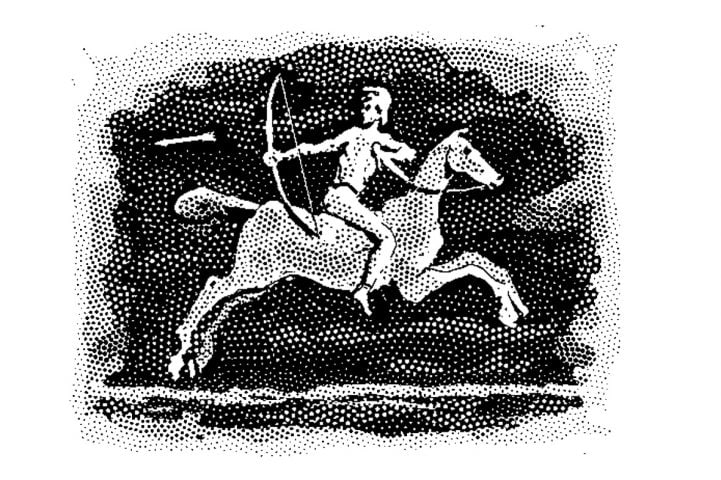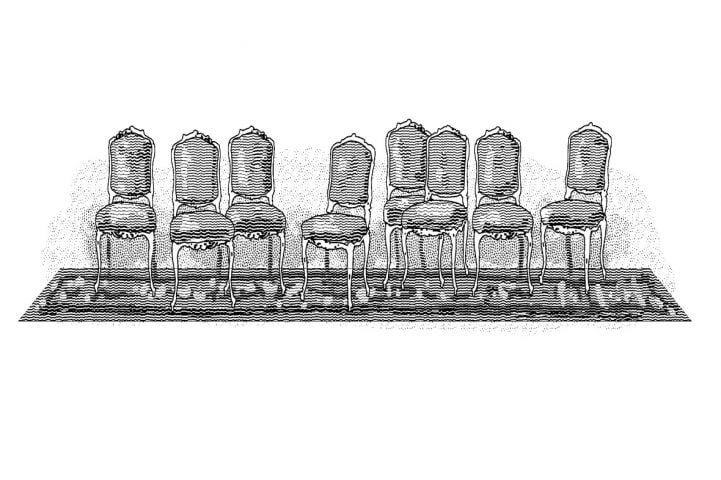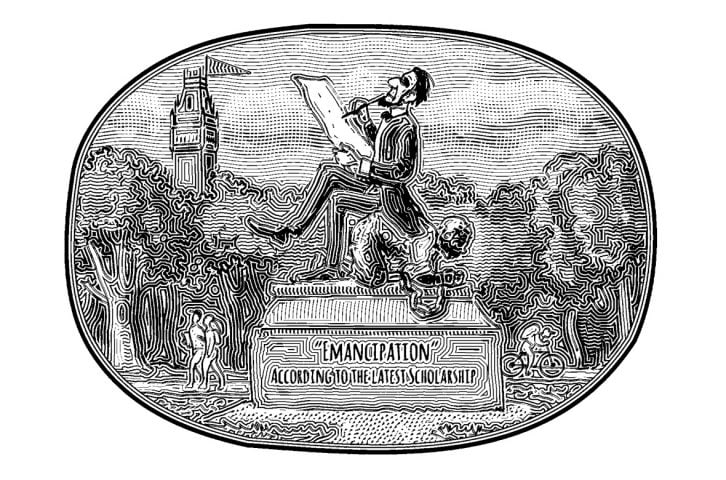Books Reviewed
A review of Bonaparte: 1769–1802, by Patrice Gueniffey
Napoleon: The End of Glory, by Munro Price
Napoleon: A Life, by Andrew Roberts
Citizen Emperor: Napoleon in Power, by Philip Dwyer
Here are four recent biographies of Napoleon Bonaparte, and, as they arrived simultaneously, here also is a question every biographer of Napoleon asks, usually in the first few pages: why are there so many biographies of Napoleon?
It’s a good question, one that might require a book-length answer. “People are sometimes astonished by the large—even enormous—number of studies that have been devoted to Napoleon: several tens of thousands, and the list grows longer every day,” writes Patrice Gueniffey, in the first volume of his biographical study—this one going only as far as 1802, Bonaparte’s 33rd year, in a mere 1,000 pages. The list grows like Topsy. Munro Price, quoting yet another biographer of Napoleon, claims there have been “[w]ell over 200,000 books…written about him since his death.” That makes a huge understatement of Andrew Roberts’s assertion that “More books have been written with Napoleon in the title than there have been days since his death in 1821.”
It’s a publishing trend that started early. Only ten years after Napoleon’s death, his private secretary, Louis Antoine Fauvelet de Bourrienne, was able to complain about the “multitude of publications under the titles of historical memoirs, secret memoires, and other rhapsodies which have appeared respecting Napoleon.” His complaint, of course, appears in his own Memoirs of Napoleon Bonaparte (1829-31).
So, four more biographies of Napoleon—no doubt amid others going to press as these four come off. Do we need more?
If you have to ask, the answer’s no, one would think. Yet every time the question is posed, a biographer feels compelled to reply in the affirmative, usually in the opening pages of the longest imaginable version of the short (5’6”) man’s short (not quite 52 years) life, and invariably without providing an answer beyond the obvious. One buys and reads Napoleon biographies for reasons difficult to explain. Goethe, quoted by Emil Ludwig in his 1925 biography of Bonaparte, speaks for many, many readers when he says, “The story of Napoleon produces on me an impression like that produced by the Revelation of St. John the Divine. We all feel there must be something more in it, but we do not know what.” Okay, that’s Goethe’s hunch, but many have invested in a marriage on less.
* * *
Andrew Roberts begins his Napoleon: A Life by writing, with wiki-like efficiency, “Napoleon Bonaparte was the founder of modern France and one of the great conquerors of history.” It’s not a great grabber, and perhaps no way to launch a page-turner, but maybe that’s not a bad thing, since you’re holding a book with nearly a thousand pages in need of turning.
In the case of Roberts, it’s probably worth the effort. Of course Napoleon led a remarkable life—from penniless immigrant to army general by age 26—and his rocket-like career is outlined in microscopic detail in these volumes. Reading these accounts of racing armies, massive battles, life-changing legal codes, betrayals, massacres, and misery, you worry that the most fascinating thing about Napoleon is that he is so fascinating to so many. But that way lies mortification, for Napoleon is more than a Kardashian of history, as Roberts shows. With its painstakingly reconstructed battles and brilliant analysis of gigantic public works projects, political plotting, and manipulative social masterminding, Roberts’s biography is the best way to know at least what Napoleon actually did, even if we put down the book unable to soothe the same discomfort that afflicted Goethe. Reading Roberts or Price or Philip Dwyer makes one wish for just a little distance on the whole business. Eventually, the main thing about Napoleon finally floats into view: a better way to write his biography is to stand back far enough that you can see his vision from afar.
Gueniffey’s more poetic text does this well, at least in its first volume, and provides a better glimpse of the “what” Goethe was looking for, which was a deeper understanding of the meaning behind all the events in the emperor’s life. To do this, Gueniffey resorts, perhaps wisely, to metaphysics: he quotes Chateaubriand’s claim that “[a]n unknown Bonaparte precedes the immense Napoleon, [but] the idea of Bonaparte was in the world before he was there in person: it secretly shook the earth. In 1789, when Bonaparte appeared, people felt something tremendous, an anxiety they could not account for.” Gueniffey expands:
The irruption of the great man into history does not depend on the birth of an individual endowed with uncommon abilities and on the efforts he later makes to dominate his period. The role played by Napoleon depends primarily, not on his existence, but rather on the crisis provoked by the French Revolution. Great men arise from times of crisis, from periods that allow talented individuals to make use of their capacities and especially their will, to an extent and with an intensity unknown in ordinary times when customs, laws, and institutions circumscribe the will’s action within narrow limits. Peaceful times have no need for great men.
In fact, Gueniffey might have even gone further by noting that the revolution in turn was the result of dry rot in the ancient edifice of the French nation itself. Revolutions do not sweep healthy nations. They come about when the central myth of a nation can no longer be supported by the obvious facts. Nations jump sharks on a rising tide of disbelief. People knew that under the myth of grandeur that defined the French nation during the Ancien Régime were two warring, rotting half-nations, one of corrupted, exotic Catholicism and the other militantly, insistently masonic, in both the literal and the figurative sense. And under that were centuries of lousy government and psychotic eruptions, such as the 16th-century wars of religion.
* * *
“The history of great men does not merge with the history of their time,” Gueniffey observes. “That is, in a way, the paradox of the great man: he is caught up in history to the point of coalescing with it…he gives it a character that is all his own and whose secret resides in him and in him alone.”
In the case of Napoleon, the secret was extremely ill-kept. He was famously the possessor of a massive ego, one so powerful that, as Dwyer notes, it “dominated his relations with other people, even those he supposedly loved.” It also characterized his policies and his actions, which may be what Gueniffey means when he says Napoleon “coalesced” with history. He had a glorious vision of his role in life; there was no room for circumstances or personalities that interfered with what he saw so clearly. As Munro Price notes, “throughout his life [he] remained undaunted by obstacles others would have regarded as insuperable.” This remarkable self-confidence, Price says, made him “one of the great men of history” by making him live up to his own myth:
First and foremost, he was a military genius, though his real talent lay in the application of new strategy and tactics rather than their creation. Just as remarkable were his administrative gifts, which had steered France away from post-revolutionary chaos and imposed a structure of government, much of which remains in place today.
Napoleon’s vision has, in many ways, survived five republics, two more monarchies, a German puppet regime, and another ersatz empire. He is essential to the continued existence of France. During his disruptive lifetime, he offered to the French nation a sensible conflation of his glory with that of the nation, one that helped the whole enterprise cohere. Napoleon’s triumphs became the triumph of all living Frenchmen, and the old France was quickly forgotten, made useless and left behind by the emperor’s quick-moving legions.
The emperor may have died long ago, but France still sees itself covered in “la gloire”—even if nobody quite knows what that means in the 21st century, when all that gloire is dimmed by the fog of E.U. bureaucracy. But at the end of the 18th century and the beginning of the 19th, everybody knew what gloire was. It was the heritage of a once-great people, now buried in the chaos of revolution. The 19th-century building in which I sit now, for example, is built atop a lasagne of Frances: layers of French nations. Down below me someplace is a Roman villa, a medieval abbey, an old chateau, and a cellar full of good, cheap wine, and that’s just a few square meters of France. Likewise, Napoleon’s France was an empire built on the rubble of the old Europe, piles of ruined churches, the litter of political and social mayhem, and the barely recognizable debris of sacked royal houses. Napoleon arrived and with the subtlety of a bulldozer smoothed it all out and paved it all over. Everybody knew an older France, one grander than any Corsican dream, was down there someplace, but people were tired of looking for it. Their new, improved France was (and apparently continues to be) an appealing idea.
At the same time, Napoleon conflated, at least in the minds of Frenchmen, the essence of France and the idea of Europe. “The core of Napoleon’s personality,” Price writes, “was a driving need for domination.” That kind of ambition sees things in an orderly, logical way. Napoleon created modern Europe by making it the logical consequence of all that had preceded it. It was a concept that proved to be invulnerable. Island Britain, for example, will never quite succeed at being a part of Napoleon’s version of modern Europe, try as it might to fit into a European Union Napoleon would have certainly understood and obviously anticipated. Russia, on the other hand, was unavoidably European and therefore, unlike Britain, just down a long European street: go to Paris, face north, turn right and keep marching. That apparently made sense to Napoleon—at least until it obviously didn’t.
* * *
These are all magnificent works. Price’s end-of-the-road narrative brings a simple clarity to his portion of this vast plain of knowledge, and he weaves proper skepticism through his well-wrought narrative, pointing out that had Napoleon been less psychologically impaired by his egotism, many lives might have been saved, and with them his country. Price points out that his “need for domination was perfectly well suited to dictating peace terms to a defeated enemy…[b]ut it had no place in negotiations between equal partners seeking peace through rational compromise.”
Dwyer is likewise clear-eyed about his subject, pointing out his “irrational sense of invincibility,” his stubbornness, his inability to trust his subordinates, his “[h]ubris, arrogance and an utter inability to admit his mistakes,” traits which were “the hallmarks of his monologues.” To these vices was added his inability to realize that his problems were caused by “invading Russia in the first place, adopting a Continental System that obliged him to try to blockade Britain in an effort to pursue the phantom of economic dominance, fighting a war on two fronts [and]…being drawn deep into Russia in spite of himself.” Dwyer makes Napoleon familiar to most of us by building his narrative around expertly sketched flaws and foibles. He apparently thought, for example, he could talk his way out of his troubles, as though that Russian defeat “were simply a matter of putting up a good argument, rather than dealing with a reality that touched the lives of millions of people. “
Patrice Gueniffey’s Bonaparte is beautifully written, and its portrait of Talleyrand is masterly. If you need more Napoleon, Gueniffey’s next volume is a good bet, and provides an interesting contrast to the work of these other, Anglophone biographers. When the narrative in this volume succumbs, as it must, to the detail-bedecked excess common to all Napoleon biographies, however, it recedes into a familiar conformity.
Roberts is a prolific biographer and one of the best. His Napoleon is a terrific read, filled with detail—it’s as close as we will ever come to a one-volume Bonaparte encyclopedia—and his descriptions of battles and political conflicts—and even committee meetings—are very good, and in places almost cinematic. He was able to use the huge trove of correspondence now being released by the Fondation Napoléon, and, as he reports in his book, he has visited almost all (53 of 60) of the Napoleonic battlefields of Europe. Napoleon: A Life is upholstered with don’t-tread-on-me rhetorical defenses: the book opens with his acknowledgment of the help given to him by President Nicolas Sarkozy of France and Prime Minister David Cameron of Great Britain, not to mention Henry Kissinger. But what gives his book charm is the thing most would say diminishes it: he is in love with his subject.
* * *
This is a phenomenon common to many biographers, but sometimes, as when Roberts feels his man has been wronged, it causes temporary madness. He seems angry at Winston Churchill, for example, who took pains to warn against comparing “the great Emperor” with the “squalid caucus boss and butcher” that was Hitler, but nonetheless sensibly encouraged Britons to “achieve our Waterloo” through a “determination to fight on, as Pitt and his successors fought on.” Roberts protests:
To demonize the character of an enemy while the war is being fought is perfectly understandable—an opponent’s personality is fair game, after all—but it is unnecessary two centuries after his defeat.
This is a lover’s defense—overblown and unnecessary. Two centuries after his defeat, Napoleon is nothing but personality. Besides, he can take it. Maybe we shouldn’t be told that an earlier biography (Correlli Barnett’s) “sits in [Roberts’s]…study alongside a lock of Napoleon’s hair, a commiseration letter from him to a lady widowed at the battle of the Nile, various medals struck during the Consulate and a piece of the wallpaper from the room in which he died….”
France resembles Roberts’s study in that there are souvenirs of the emperor everywhere. There are almost as many Places Napoléon in France as there are biographies of their namesake. The Place Napoléon in the center of La Roche-sur-Yon—a tiny village converted by Bonaparte in 1804 into a departmental capital to help persuade the restless locals to stop their constant rebelling against Paris—provides a landing spot for a massive statue of the great man. It towers over an unused parade ground designed long ago to accommodate 20,000 soldiers. You can see Napoleon from miles away. But the bands and soldiers have all gone home, and the commerce of the city crowds around. You can stand in a corner of the open space, look at the statue, and, like Goethe, feel there maybe should be something more in it.




